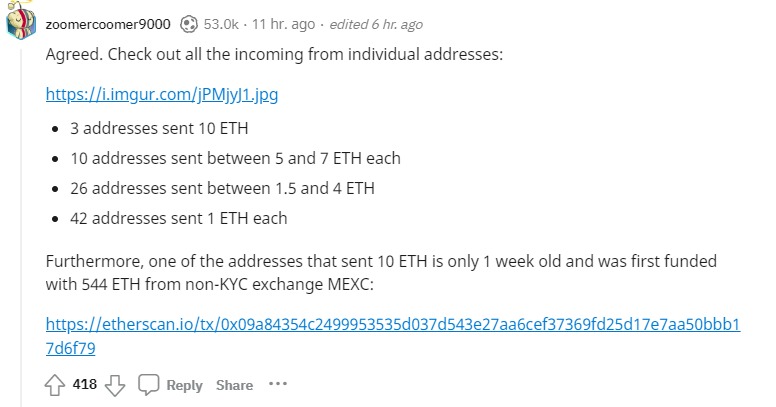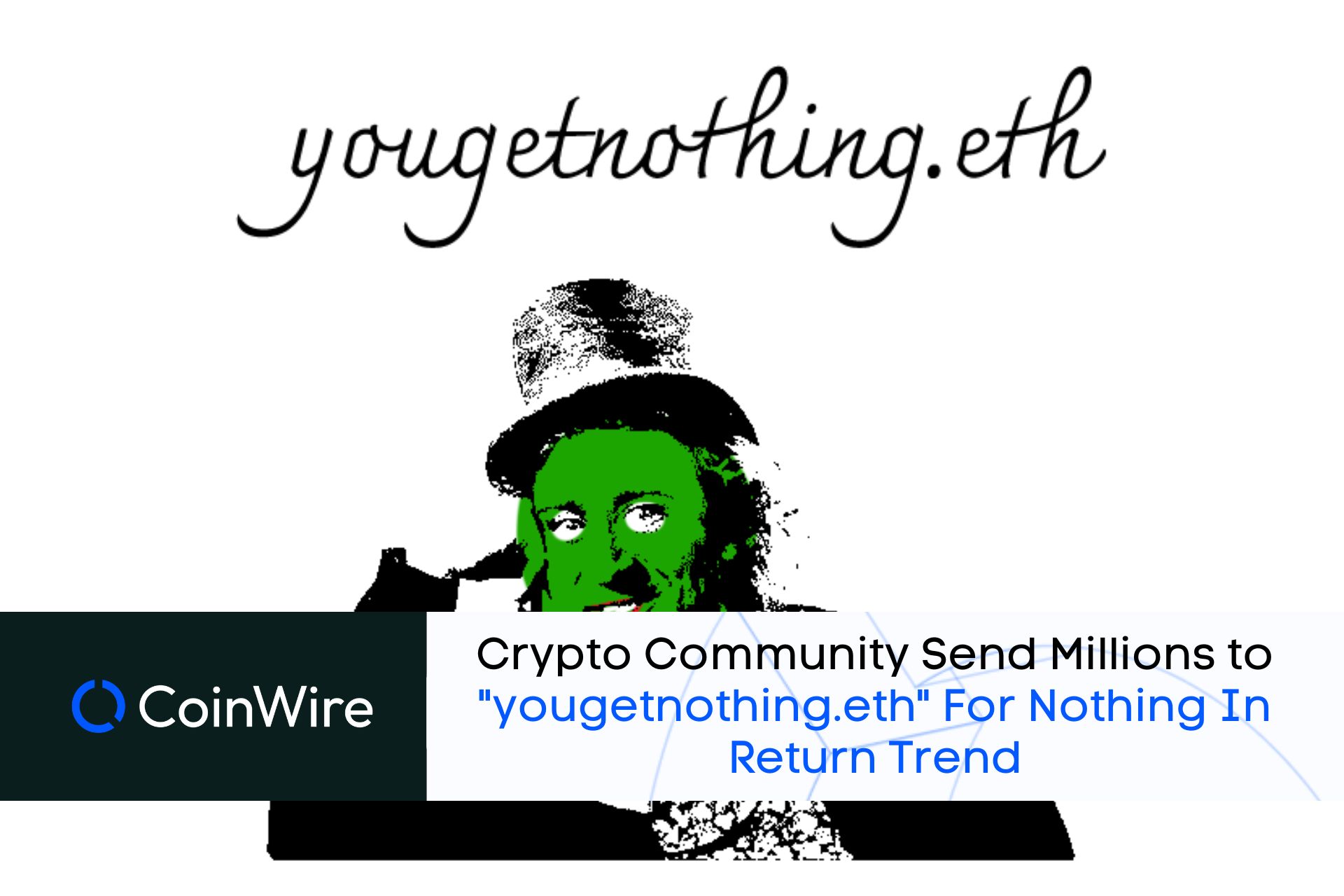A peculiar trend has emerged on Twitter where social media influencers are requesting Ethereum (ETH) from their followers without offering anything in return. This phenomenon has garnered significant attention and triggered a range of theories, from publicity stunts to potential money laundering activities. As the influencers’ wallet addresses receive substantial amounts of ETH, concerns have been raised within the crypto community about the true intentions behind these requests.
The Rise of the Trend
In a bid to capitalize on the recent frenzy surrounding “memecoins,” an influencer attempted to promote their wallet address, pledging to deliver nothing in exchange. Within just 24 hours of its creation, a wallet address named “yougetnothing.eth” received over $1 million worth of ETH. Encouraged by this success, other social media accounts started emulating the trend, hoping to obtain ETH for themselves. Some influencers requested ETH to purchase non-fungible tokens (NFTs), while others shamelessly promised to spend the funds on indulgent activities like “hookers and cocaine.”
Satire and Ethereum Burn Wallets
Amidst this growing trend, several individuals deployed satire by promoting Ethereum burn wallets. These burn wallets mock the individuals who unknowingly send their funds to random addresses. The intention behind this response is to highlight the risks associated with blindly sending cryptocurrencies to unknown entities.
The Experiment Theory
One influencer claimed that they orchestrated this trend as an experiment, with only one person donating to their cause. This individual concluded that the trend was merely a strategy to gain attention and traction by sending ETH to themselves, rather than a genuine attempt to solicit funds from followers.
Community Response and Suspicions
On Reddit, the crypto community expressed skepticism and disapproval of the trend. One Redditor pointed out that the Twitter account in question had a relatively modest following of around 68,000, suggesting that the funds received were unlikely to originate from the community itself. The Reddit user speculated that these requests could potentially be part of a money laundering scheme, where illicitly obtained ETH is disguised as donations.

Furthermore, another community member highlighted the suspicious nature of one account that had only been active for a week but had already received 544 ETH from an exchange that lacked stringent Know Your Customer (KYC) checks. This observation, combined with the consistent pattern in the donation amounts, raised further concerns among community members.
Warnings from Experts
Former United States Securities and Exchange Commission chief, John Reed Stark, issued a warning to social media influencers who manipulate cryptocurrency prices. Stark emphasized that these influencers would inevitably be caught and face legal consequences for their actions.
The recent trend of influencers soliciting ETH on social media platforms without offering any value in return has ignited speculation within the crypto community. While some individuals have embraced the trend as a satirical response, others have expressed concerns over potential money laundering activities. As the situation continues to evolve, it is crucial for users to exercise caution and verify the legitimacy of such requests before sending any funds.







